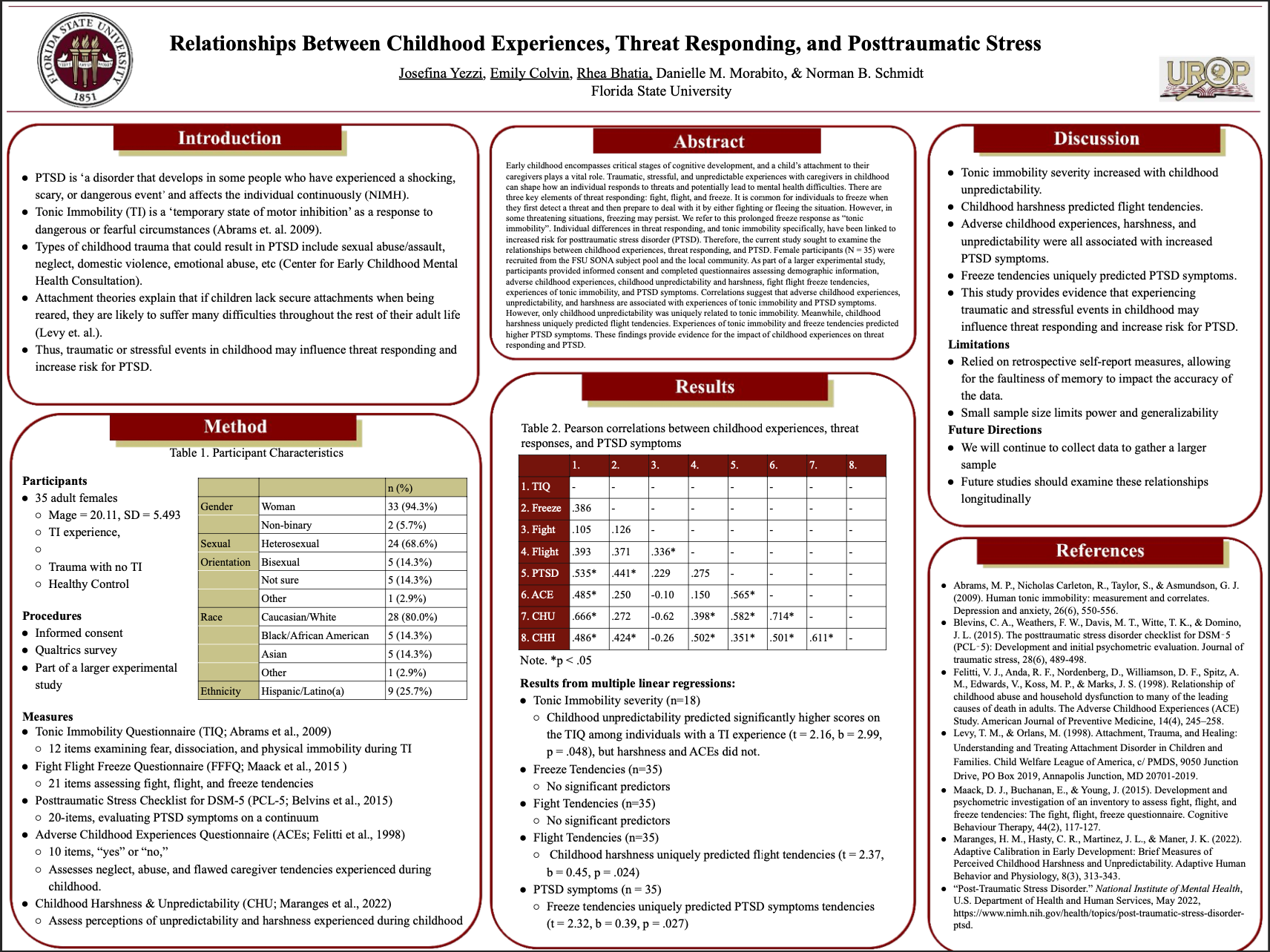Research Symposium
23rd annual Undergraduate Research Symposium, April 6, 2023
Josefina Yezzi Poster Session 3: 2:45 pm - 3:45 pm/ Poster #124

BIO
My name is Josefina Yezzi and I am from Fort Myers, FL. I am studying cell and molecular neuroscience on a pre-medical track with hopes of eventually specializing in neurology/neurosurgery. Aside from my research with PTSD in my UROP lab, I also work in the Tallahassee Neurological Clinic as a neurosurgical research intern to continue to expand my knowledge on the area.
Relationships Between Childhood Experiences, Threat Responding, and Posttraumatic Stress
Authors: Josefina Yezzi, Dr. Norman B SchmidtStudent Major: Cell/Molecular Neuroscience
Mentor: Dr. Norman B Schmidt
Mentor's Department: Psychology Mentor's College: Arts and Sciences Co-Presenters: Emily Colvin and Rhea Bhatia
Abstract
Early childhood encompasses critical stages of cognitive development, and a child’s attachment to their caregivers plays a vital role. Traumatic, stressful, and unpredictable experiences with caregivers in childhood can shape how an individual responds to threats and potentially lead to mental health difficulties. There are three key elements of threat responding: fight, flight, and freeze. It is common for individuals to freeze when they first detect a threat and then prepare to deal with it by either fighting or fleeing the situation. However, in some threatening situations, freezing may persist. We refer to this prolonged freeze response as “tonic immobility”. Individual differences in threat responding, and tonic immobility specifically, have been linked to increased risk for posttraumatic stress disorder (PTSD). Therefore, the current study sought to examine the relationships between childhood experiences, threat responding, and PTSD. Female participants (N = 35) were recruited from the FSU SONA subject pool and the local community. As part of a larger experimental study,
participants provided informed consent and completed questionnaires assessing demographic information, adverse childhood experiences, childhood unpredictability and harshness, fight flight freeze tendencies, experiences of tonic immobility, and PTSD symptoms. Correlations suggest that adverse childhood experiences, unpredictability, and harshness are associated with experiences of tonic immobility and PTSD symptoms. However, only childhood unpredictability was uniquely related to tonic immobility. Meanwhile, childhood harshness uniquely predicted flight tendencies. Experiences of tonic immobility and freeze tendencies predicted higher PTSD symptoms. These findings provide evidence for the impact of childhood experiences on threat
responding and PTSD.
Keywords: Posttraumatic stress, Childhood trauma, Tonic immobility


